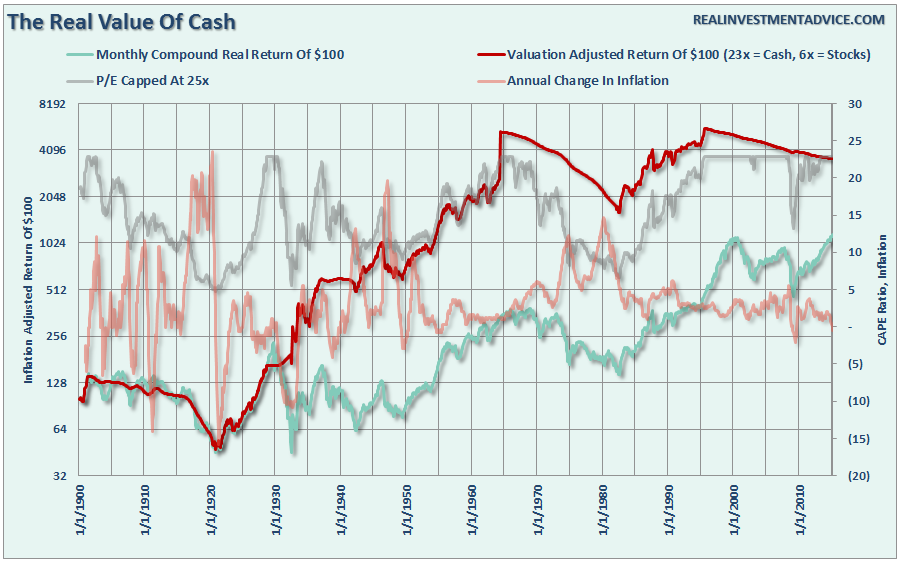Anora Mahmudova commented recently on MarketWatch about Mohamed El-Erian’s discussion on the importance of holding cash.
At a breakfast meeting with reporters on Monday, the former Pacific Investment Management Company chief executive said central bank asset purchases have successfully decoupled asset prices from fundamentals and distorted traditional correlations.
‘Investors cannot rely on correlations as a risk mitigator, making cash a very valuable thing to have.
It can give your portfolio resilience during stressful times, optionality—whether you use it for tactical or strategic purposes and flexibility to deploy it when necessary.’
Central banks are finding it harder and harder to repress volatility in financial markets, and any jolts, such as currency devaluation in China or political events, such as Brexit, result in wild swings in the markets.’
El-Erian also said years of unconventional monetary policy, including asset purchases, and a lack of fiscal stimulus are making developed economies less stable.
Whenever El-Erian makes comments about the value of holding cash, there is generally a good bit of media backlash about the impact of inflation and the inability to successfully navigate market cycles.
El-Erian’s comments are a valuation call, driven to excess by monetary interventions on the financial markets suggesting that having capital invested will likely yield substantially lower or negative returns in the future. This is an extremely important concept in understanding the “real value of cash”.
Asset Prices Vs. Inflation
The chart below shows the inflation-adjusted return of $100 invested in the S&P 500 (using data provided by Dr. Robert Shiller). The chart also shows Dr. Shiller’s CAPE ratio. However, I have capped the CAPE ratio at 23x earnings, which has historically come at the peak of secular bull markets. Lastly, I calculated a simple cash/stock switching model, which buys stocks at a CAPE ratio of 6x or less and moves to cash at a ratio of 23x.
I have adjusted the value of holding cash for the annual inflation rate, which is why during the sharp rise in inflation during the 1970s there is a downward slope in the value of cash. However, while the value of cash is adjusted for purchasing power in terms of acquiring goods or services in the future, the impact of inflation on cash as an asset with respect to reinvestment may be different since asset prices are negatively impacted by spiking inflation. In such an event, cash gains purchasing power parity in the future if asset prices fall more than inflation rises.
While no individual could effectively manage money this way, the importance of “cash” as an asset class is revealed. While the cash did lose relative purchasing power due to inflation, the benefit of having capital to invest at low valuations produced substantial outperformance versus waiting for previously destroyed investment capital to recover.
While we can debate the methodologies, allocations, etc., the point here is that “time frames” are crucial in the discussion of cash as an asset class. If an individual is “literally” burying cash in their backyard, then the discussion of the loss of purchasing power is appropriate. However, if the holding of cash is a “tactical” play to avoid short-term destruction of capital, then the protection afforded outweighs the loss of purchasing power in the distant future.
Of course, since Wall Street does not make fees on investors holding cash, maybe there's another reason they are so adamant that you remain invested all the time.

